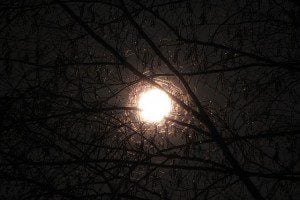
This isn’t a good story; just a true one.
A good story has a good ending. I’m not sure how this one ends, and I may never know.
I haven’t seen the children I’ve referred to as the Artful Dodgers since last Friday. Friday, at ten in the morning, just as the catastrophic climate heat dome began to settle over the Ohio Valley, the five-year-old I call The Mandrake came up to the door by herself. She asked for a popsicle, and she got it. Later, I saw her walking with The Sylph, by themselves, far from their houses. They were dressed in old dirty winter pajamas, and their hair was not only tangled but matted. They’ve been looking worse and worse, and acting up in more and more unruly ways, since the Mandrake’s birthday party and the end of the school year.
I’m not going to reveal the things the children were telling me, and the ways it got much worse after school let out. I’ve kept their identity a secret. I’ve fictionalized details about their appearance so you wouldn’t know them if you saw them. I try to do that for all the children of LaBelle. But they are real children, and they were really suffering. When they didn’t come to see me on Friday evening, I prayed that the desperate call I made to social services earlier in the week would be answered. And I don’t know, nor do I have a right to know, what happened after that. Maybe they finally got off the waiting list for a better house with Section Eight. Maybe they’re homeless somewhere. For all I know, they’re spending a few weeks with family and will be back soon. They aren’t my children. I am just a neighbor friend. But I got to be their imaginary grandmother for a year. And now the situation is in the hands of people other than me, people much more equipped to help.
On Sunday night, as the day’s heat broke slightly, I went for a walk in the dark.
I walked around the alley, behind the house of the man who brought water, and Jimmy the Mechanic, and then the Dodgers’ house. I looked up at that catastrophe of a yard, overgrown with burdock and thistles. The sagging porch was still covered in rotting bags of old clothes. I could still smell the dry rot, and the ashes from the pit where their mother burned the garbage.
Around front, the lights were all still on, and the children’s toys were still scattered on the front walk exactly as they’d been left– but there was nobody there.
I went back around to my garden, where the very first yellow sunflowers were blooming. The sugar snap peas were sagging under the weight of the trellis. The brand new grape vine was beginning to grow up the stake.
A cat padded cautiously towards me, from around behind the squash bushes.
It wasn’t Charlie Chaplin, the cat who took refuge with me after she bore four litters at the Dodgers’ house and finally got spayed and tipped to save her life. It was Charlie’s daughter, Sparkles the Disaster Cat.
The Dodgers had been made to get rid of most of their neglected kittens months ago, but they had kept this one, in the same terrible circumstances. And now, it seemed, if they left their house voluntarily, they’d abandoned her to starve.
Sparkles followed me back to the porch.
I woke up Monday morning in the throes of the unbearable heat wave. When I opened the door, it felt like a tidal wave of boiling water was pouring through it. I put out the last can of Friskies for Charlie, and made sure she had plenty of water– and then I saw Sparkles lying on the opposite side of the porch, eyeing her mother cautiously. Charlie is traumatized by her treatment at the hands of the Artful Dodgers. She tends to chase away all other cats, including Sparkles.
I didn’t want another cat.
I can’t afford another cat.
I can’t even afford Charlie. I can barely afford to keep the guinea pig.
All I ever wanted was to get away from Steubenville, away from Northern Appalachia, to a neighborhood that would have seemed normal to me twenty years ago. I wanted to be a smug and modest multipara who walked her troop of homeschoolers into daily Mass, with all the girls in mantillas and all the boys in ties. I wanted to grow an organic garden just like this one– not in the backyard of the tumbledown rental house in a terrible neighborhood, but in a suburban neighborhood on a quarter acre, with room for a flock of hens. I wanted to be a pillar of the community– not this one, but a respectable community. I wanted to be a saint– not a real one, not the kind that suffer and worry and have to make choices, but a plaster saint in a plaster shrine in a respectably ugly Baroque-inspired church like the one downtown. I never, ever, ever wanted to be a poor chronically ill woman with a single child who went to the public school, in a tragic and traumatized neighborhood like LaBelle, in a country that’s falling apart, on a planet that’s burning to death. I never, ever, ever wanted to know this kind of grief.
Still, here was a neighbor I could help.
I gave Sparkles a handful of Charlie’s dry cat treats, and Adrienne got her a bowl of water.
After we dropped Michael off for his shift, we bought a second water dish, and a stack of extra cans of Friskies.
I sat between the cats, opening the cans, reassuring them that there was plenty to eat here, there was no need to fight, and they were never going back to the slum house again.
“I changed your mother’s name to Charlie Chaplin,” I told the cat. “So your new name is Buster Keaton. You’ll be safe here.”
And the hot stifling day turned to hot stifling night, and in a way, I was sadder than I’d ever been.
There are no easy answers; only the suffering God. There are no easy answers, no pomps or works or empty promises; only the Great Commandment. There is no Prosperity Gospel; only the Gospel that says “Who was a neighbor to the man who fell? The one who had mercy. Go and do likewise.”
The heat will break tomorrow, and the rain will come back.
Mary Pezzulo is the author of Meditations on the Way of the Cross, The Sorrows and Joys of Mary, and Stumbling into Grace: How We Meet God in Tiny Works of Mercy.












